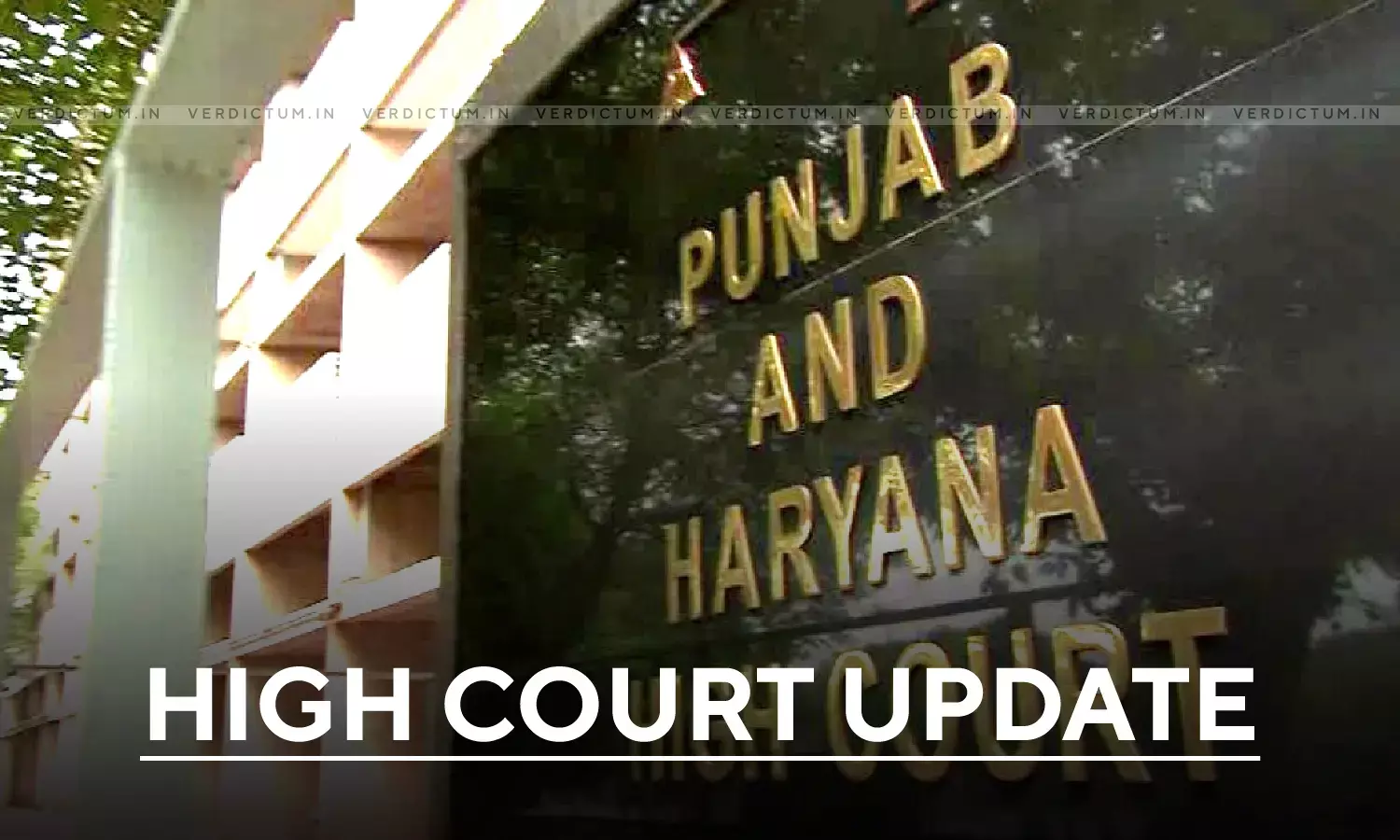Why Interrogation By Police Shouldn't Be Videographed? Punjab & Haryana HC Seeks Replies From DGPs Of Both States

In a case filed by Gangster Kaushal alleging custodial torture by the police, Justice Amol Rattan Singh of the Punjab and Haryana High Court has directed the DGP of Haryana and the DGP of Punjab to file their own affidavit explaining why the interrogation of an accused should not be undertaken under videography.
Kaushal is accused in more than 200 cases in Delhi, Haryana and Punjab, including in the shootout inside Rohini Court in Delhi, resulting in the death of three persons. He was arrested in 2019 by the Haryana Police's special task force at IGI Airport on his way back from Dubai, from where he operated.
The Court was hearing a case filed by Kaushal alleging torture during his interrogation in police custody and demanding that his interrogation and transit to and fro between jail and police custody should be videographed.
He has alleged that the police tortured him during the interrogation and that he can be eliminated by the police in a fake encounter at the instance of rival gangsters.
Kaushal has elaborated the custodial torture that he underwent in his petition and the same has been reproduced by the Court in its interim order.
The Court observed that no human being should either indulge in or be subjected to torture.
"Needless to say, if a person is found guilty of the commission of any offence, he/she would suffer the consequences thereof, including capital punishment if that is so warranted in any particular case, but nevertheless, the kind of allegations that have been made in paragraph 22 are of the most depraved kind of behaviour, that no human being should either indulge in or be subjected to," the Court stated.
"The Court In view of the above, the DGP of Punjab and the DGP of Haryana are both directed to file their own affidavits in reply to the aforesaid allegations and state on affidavit as to why then this court should not direct that videography be conducted of the interrogation of the petitioner, though of course this court is obviously fully aware that an allegation of any kind can be made by an accused person, though there may not be any truth in it." it further added.
Senior Advocate Bipan Ghai represented the petitioner, while Additional Advocate General Neeraj Poswal appeared for Haryana, Deputy Advocate General Rana Harjasdeep Singh for Punjab and Additional Public Prosecutor Rajeev Anand appeared for Union Territory of Chandigarh.
After hearing the parties, the Court observed that, "in any civilized society interrogation is now always down under videography to ensure that no inhuman methods of interrogation are resorted to, with it to be further observed by this court that proper methods of investigation and interrogation also result in criminals being convicted and therefore there would be no excuse to say that if interrogation is made subject to videography, it may not have the desired results as regards the guilt or innocence of an accused."
"Also, a disclosure statement made in police custody, unless it leads to actual recovery etc., would normally not be admissible in evidence. Consequently, looking at the kind of allegations made in paragraph 22 of the petition, which obviously, if the investigating officers are directed to file a reply thereto, would be denied wholly, the DGPs shall state as to why this court should not, at least in appropriate cases, direct that interrogation be conducted under videography, so that neither can such like treatment of accused persons be resorted to, nor would accused persons then be able to make such accusations/allegations," the Bench directed in its interim order.
The Court then asked the States to adhere to the guidelines of the interrogation. "In the meanwhile, the States shall ensure that the mandatory provisions of Sections 41-B, 41-D and 54 and all other statutory provisions contained in the Cr.P.C., are duly adhered to by the respondents-States not only in respect to the petitioner but also obviously in respect to all persons accused of any crime."
The Court adjourned the matter for further hearing to January 7, 2022.
Click Here to Read/Download the Order

